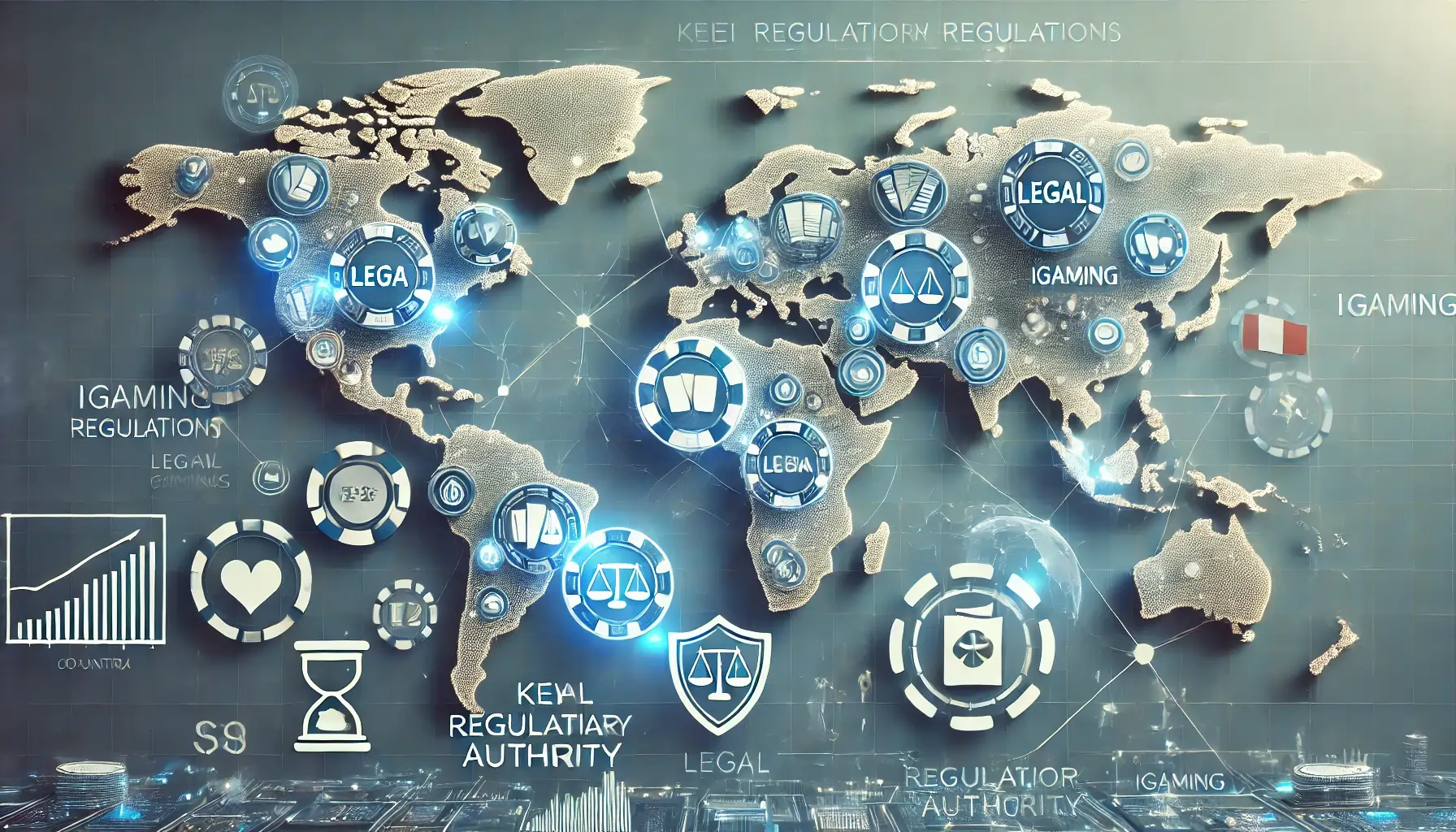
Legal Aspects of iGaming Worldwide
The iGaming industry has experienced unprecedented growth over the past decade. As digital platforms evolve and consumer interest in online gambling increases, the legal landscape surrounding iGaming continues to be complex and varied across different jurisdictions. legal aspects of iGaming
This article aims to provide a comprehensive overview of the legal aspects of iGaming worldwide, offering insights into regional regulations, compliance requirements, and the impact of legislation on operators and players alike.
Overview of iGaming Legislation
North America
In North America, the legal framework for iGaming is predominantly shaped by the United States and Canada, each with its unique regulatory stance.
United States
The United States has a fragmented approach to iGaming legislation, with laws varying significantly from state to state. The Unlawful Internet Gambling Enforcement Act (UIGEA) of 2006 plays a crucial role, as it prohibits financial transactions related to online gambling. However, the Professional and Amateur Sports Protection Act (PASPA) was repealed in 2018, allowing states to legalize sports betting individually. As a result, states like New Jersey, Pennsylvania, and Nevada have legalized various forms of online gambling, including casinos, poker, and sports betting.
Canada
In Canada, gambling laws are primarily the jurisdiction of the provinces. Each province has the authority to regulate online gambling activities. For instance, British Columbia and Ontario have established their own online gambling platforms, whereas other provinces rely on national operators like Loto-Québec. Despite this, the Criminal Code of Canada prohibits unauthorized gambling, making it essential for operators to obtain the necessary licenses.
Europe legal aspects of iGaming
Europe is a diverse landscape for iGaming regulation, with each country adopting its unique approach. The European Union (EU) provides a framework for cross-border gambling services, but member states retain significant autonomy.
United Kingdom
The United Kingdom is one of the most regulated iGaming markets globally. The UK Gambling Commission (UKGC) oversees all forms of online gambling. Operators must obtain a license from the UKGC and adhere to strict advertising, consumer protection, and anti-money laundering regulations. The UK’s Gambling Act 2005 and subsequent updates ensure a robust regulatory environment that prioritizes player safety.
Germany
Germany recently reformed its gambling laws with the Interstate Treaty on Gambling 2021. This treaty permits nationwide online casino and poker games under strict regulations. Operators must comply with licensing requirements, advertising restrictions, and player protection measures. The transition has been challenging, but it aims to create a controlled and safe iGaming environment.
Malta legal aspects of iGaming
Malta is a significant hub for iGaming operators, thanks to its favorable regulatory framework established by the Malta Gaming Authority (MGA). The MGA offers comprehensive licenses that cover various gaming activities, providing operators with a streamlined process and access to the EU market. Malta’s approach emphasizes transparency, fairness, and responsible gaming.
Asia legal aspects of iGaming
Asia presents a mixed legal environment for iGaming, with some countries embracing regulation while others maintain strict prohibitions.
China
In China, all forms of online gambling are illegal, with the government taking stringent measures to block access to foreign gambling websites. Despite the ban, underground gambling networks persist, posing significant challenges to regulation and enforcement.
Japan
Japan has recently entered the iGaming market with the legalization of integrated resorts, which include casinos. Online gambling remains largely unregulated, but the government is considering frameworks to address this growing sector.
Philippines
The Philippines stands out with its proactive approach to iGaming regulation. The Philippine Amusement and Gaming Corporation (PAGCOR) licenses and oversees online gambling operators through the Philippine Offshore Gaming Operators (POGO) scheme. This model has attracted numerous international operators, contributing significantly to the economy.
Compliance and Regulatory Challenges
Licensing Requirements
Obtaining a license is a fundamental step for any iGaming operator. Licensing authorities, such as the UKGC, MGA, and PAGCOR, impose rigorous standards to ensure the integrity and reliability of operators. These requirements often include financial stability checks, software testing, and adherence to responsible gambling practices.
Consumer Protection
Consumer protection is a cornerstone of iGaming regulation. Authorities mandate measures to safeguard players, including age verification, self-exclusion options, and limits on deposits and losses. Compliance with General Data Protection Regulation (GDPR) in Europe also ensures that operators handle personal data responsibly.
Anti-Money Laundering (AML)
iGaming operators must implement robust AML procedures to prevent illicit activities. This involves conducting thorough customer due diligence (CDD), monitoring transactions for suspicious behavior, and reporting to relevant authorities. Non-compliance can result in severe penalties and reputational damage.
Advertising and Marketing
Regulations governing advertising and marketing are designed to prevent misleading promotions and protect vulnerable populations. Operators must comply with strict guidelines, ensuring that advertisements are not targeted at minors and clearly convey the terms and conditions of promotions.
Impact of Legislation on Operators and Players
Operators
For operators, navigating the legal landscape of iGaming involves significant investment in compliance and legal expertise. Licensing fees, regulatory compliance costs, and taxes can impact profitability. However, a well-regulated market offers stability and the opportunity to build trust with players.
Players
Players benefit from regulated markets through enhanced security and fair play. Legal oversight ensures that games are not rigged, winnings are paid out promptly, and personal data is protected. Additionally, regulated markets offer recourse in case of disputes, providing players with avenues to resolve issues.
Future Trends and Developments
The iGaming industry is poised for continued growth, with emerging technologies and evolving regulations shaping the future landscape.
Technological Advancements
Technologies such as blockchain and artificial intelligence (AI) are transforming iGaming. Blockchain ensures transparency and fairness, while AI enhances customer service and responsible gaming measures. As these technologies mature, they will play a pivotal role in regulatory compliance and player protection.
Global Harmonization
There is a growing trend towards the harmonization of iGaming regulations, particularly within the EU. This aims to create a more uniform regulatory environment, reducing barriers for operators and enhancing consumer protection. International cooperation and shared best practices are essential for addressing cross-border challenges.
Responsible Gaming Initiatives
Responsible gaming remains a priority for regulators worldwide. Initiatives focus on preventing gambling addiction, protecting minors, and promoting healthy gaming habits. Enhanced collaboration between regulators, operators, and health organizations is crucial for the success of these initiatives.
Conclusion about legal aspects of iGaming
Understanding the legal aspects of iGaming worldwide is essential for operators, regulators, and players. The dynamic nature of iGaming legislation requires continuous adaptation and vigilance. By adhering to regulatory requirements, prioritizing consumer protection, and embracing technological advancements, the iGaming industry can ensure a safe and fair environment for all stakeholders.










